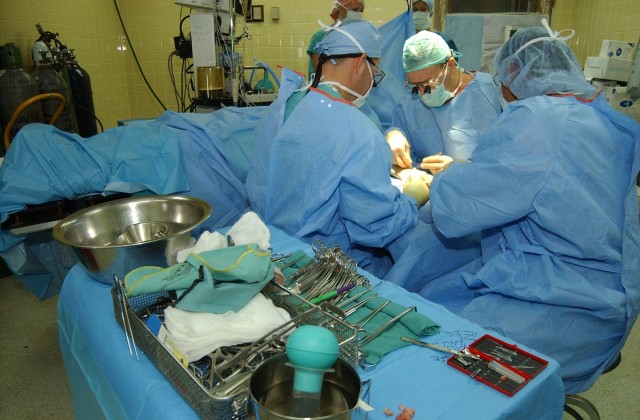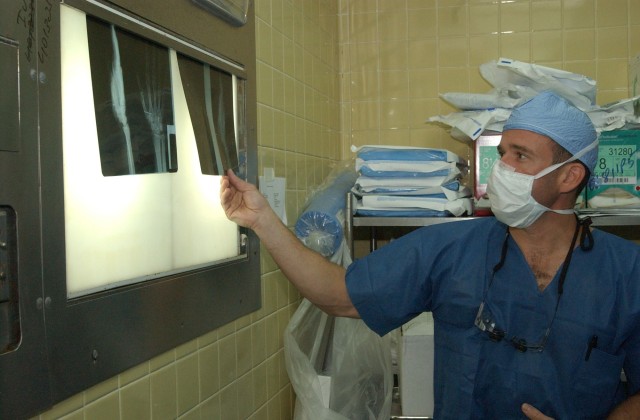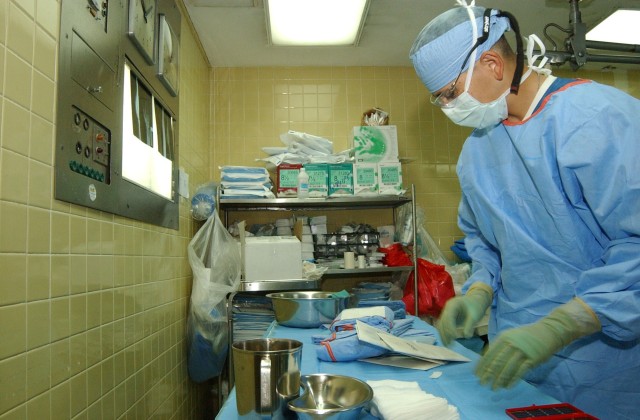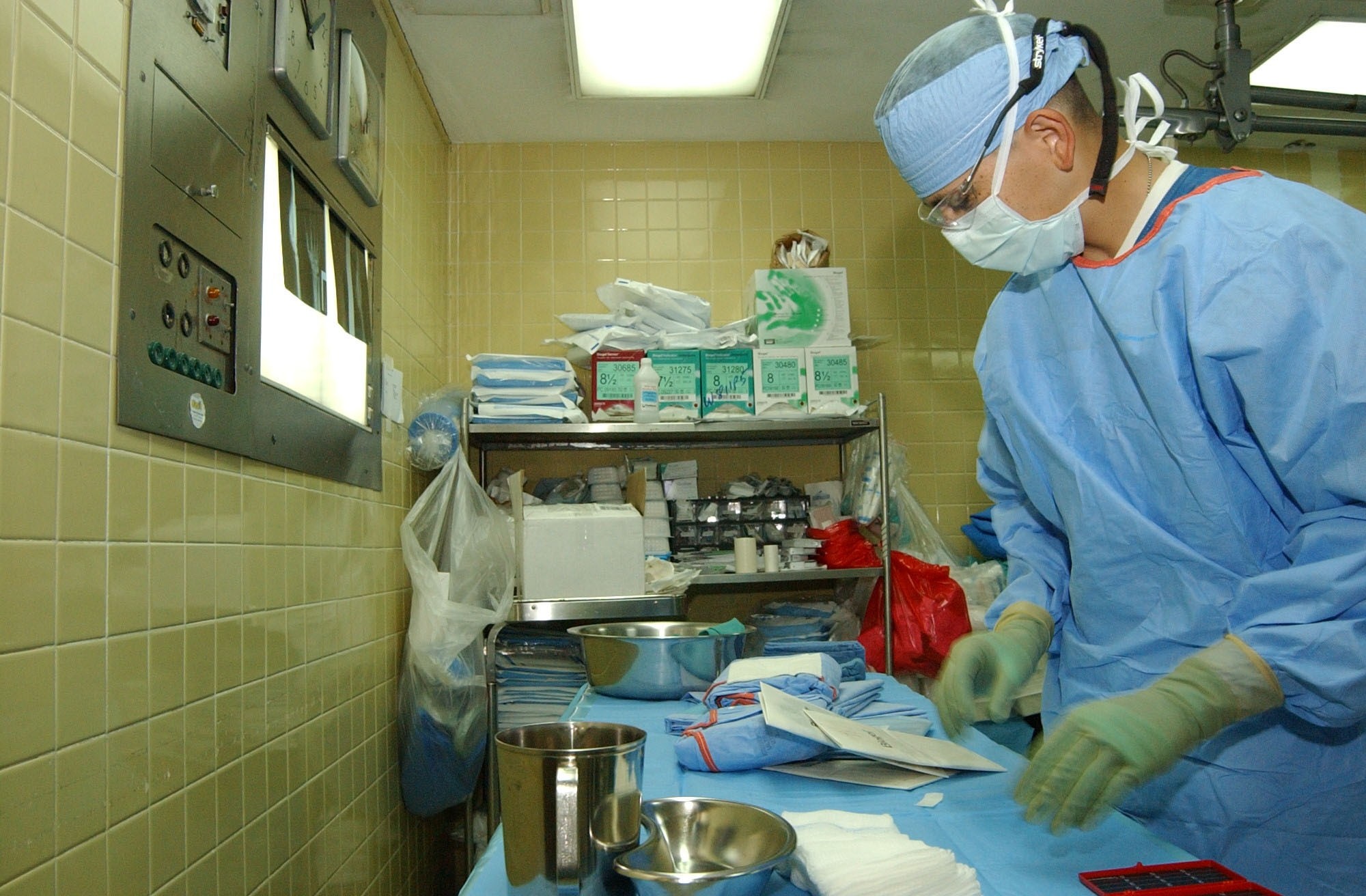TEGUCIGALPA, Honduras - In a brightly lit room in Hospital Escuela here Aug. 14, two U.S. hand surgeons bent over the hand of a 64-year old Honduran man.
The patient was born with a condition which caused his hands to be permanently clenched, explained Army Capt. Heather Higgins, the patient's anesthesiologist from Fort Sam Houston, Texas, as the doctors worked to restore mobility to the man's hand.
The 64-year old man was one of many Honduran patients to be treated by a 15-person hand surgery team comprised of medical personnel from several locations throughout the United States. The team arrived here Aug. 12 for a two-week medical readiness training exercise mission, commonly known as a MEDRETE.
"This mission is done as humanitarian and civic assistance," said Dr. Ricardo Aviles, a Honduran doctor who works as a liaison with Joint Task Force-Bravo from Soto Cano Air Base. Dr. Aviles worked with the Medical Element from Soto Cano to plan the MEDRETE.
"The hospitals here are overwhelmed with trauma, so there's no way we can get to elective cases. This MEDRETE helps clear that backlog," said Doctor Aviles. "On top of that, since we've started this about eight years ago there have been two generations of Honduran residents who have trained and exchanged experiences with the U.S. surgeons. Now things they weren't capable of doing in the past can be done, like reattaching a hand."
The Hondurans aren't the only ones who will benefit from the MEDRETE, said Army Col. (Dr.) Michael Sigmon, commander of the Medical Element at Soto Cano, the U.S. medical team will benefit as well.
"There are several goals [for the MEDRETE]," said Colonel Sigmon. "It gives us an opportunity to work with the Hondurans, it gives us the opportunity to work in austere environments, and we provide a needed care for the patients."
Working with the Honduran doctors also provides learning experiences for the U.S. doctors, said Army Lt. Col. (Dr.) Martin Baechler, a hand surgeon from Walter Reed Army Medical Center who is here on his fifth MEDRETE.
"We share medical knowledge. The Honduran doctors have ways of doing things because of their circumstances here and clever ways of accomplishing their mission that we can learn from," said Colonel Baechler. "And they can learn from the way we do things in the States."
After only one day of surgeries, first time MEDRETE participant Army Capt. (Dr.) Emerson Coates, an orthopedic surgery resident from Fort Sam Houston, is already reaping the benefits of the exercise.
The cases are a lot more difficult than what doctors would normally see in the United States because many times the injuries have been neglected for several years, he said. However, the experience will make him a better doctor, he added.
"Personally it's fulfilling and satisfying to be able to help because these folks wouldn't be able to have their surgeries if we hadn't come down here," said Captain Coates.
By the end of the exercise, 15 U.S. medical personnel and approximately 45 Honduran surgery patients will have experienced the partnership between the United States and Honduras first-hand.






Social Sharing